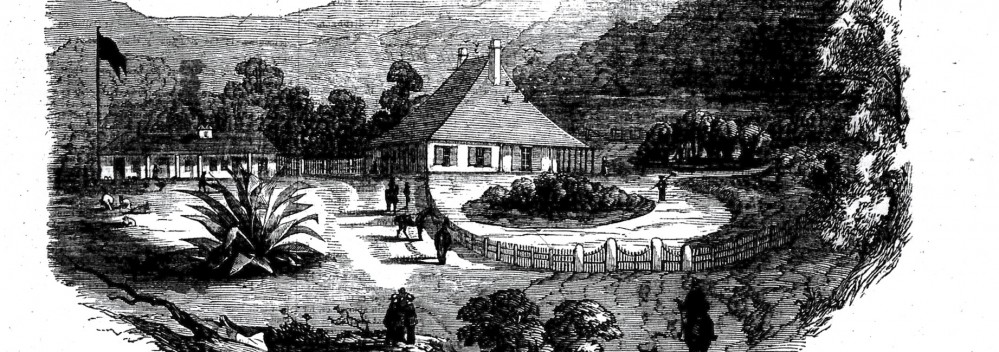In 1889 an article with this title appeared in the Maitland Mercury giving several accounts of people getting lost while travelling around what we now know as Dungog Shire. Written under the name John Gilpin (famous for having travelled a bit too far), the writer not only gives us some wonderful accounts from the earliest days of Europeans in the Williams and Allyn valleys, but even better, provides us with a fascinating insight into just how reliant these first Europeans were on the native Gringai people simply to get from one place to another.
These accounts include that by a Mr Anderson, who in 1830 set off to walk the 10 miles from his farm to Melbee ‘in company with a blackfellow, to act as guide and carry a small portmanteau’. His plan was to spend the night at Melbee before another guide would take him to Clarence Town and thence by boat to Newcastle. At first Anderson was happy enough with his guide, only complaining that ‘as the district had only been settled for about two years, he could only speak a few words of English’. Mr Anderson became lost when his guide insisted on taking a nap; growing impatient he set off on his own and after spending two nights in the bush finally hit the Williams River again and staggered back onto his own farm, much to his overseer’s astonishment.
Some ten years later, a Mr. Duncan McGregor had ‘a well-beaten track’ to follow from the Williams River to a cattle station he had on the Gloucester River. Unfortunately he took advice about a shortcut and passing over a range ‘since called New Jerusalem’ he too lost his way. After two nights and having lost a bag of rations, he followed smoke to what ‘turned out to be a blackfellows’ camp’. Duncan was weak with hunger by this stage but as he reported: ‘The blacks treated us with great hospitality, and fed us with roasted paddymelon steaks, the only food we could eat, as opossum flesh is not palatable.’ One of the friendly Gringai people rode off on McGregor’s horse and returned with rations and some men to guide him home.
Around a similar time, Mr Humbolt attempted to visit a friend at Gresford by crossing the ridge from the Upper Williams River to the Allyn River. This was a trip he had actually made some three times but as he admits, since ‘each blackfellow took me over by a different route, therefore I knew my way imperfectly’. Despite this Mr Humbolt attempted to do the trip on his own and soon he and his horse found themselves trapped in ‘dense brush’ and having to cut through vines ‘as thick as my leg’. Despite smoke from bushfires obscuring the sun, Mr Humbolt eventually made his way to Gresford without having to spend the night in the bush or call on the Gringai people for assistance.
